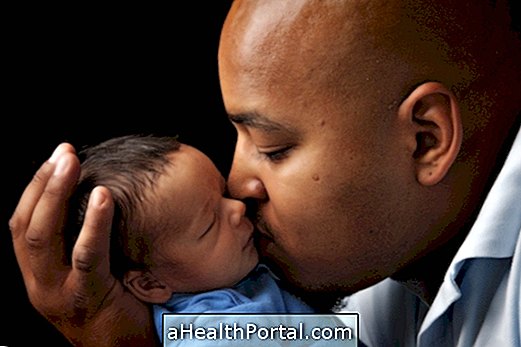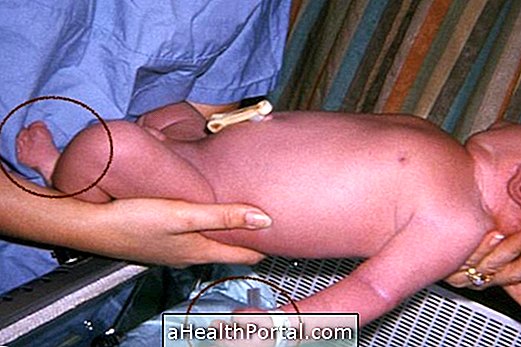The baby can already start sleeping alone in his bedroom when he begins to sleep a full night or when he starts to nurse only every 4 hours so that the mother will only have to get up to go to the baby's room once only night.
Babies should sleep in their parents' bedroom at least until 4 months of age for safety reasons. If the thought is a convenience to the mother, due to breastfeeding, the deadline should be when it completes 9 or 10 months, because after this time the baby may find it strange to stay in his room alone and have more difficulty falling asleep.
It is important to remember that the baby up to 2 years of age should never sleep on the stomach as there is a great risk of suffocation. It is best to always place the baby lying on his belly up.
To reassure parents, what can be done is to put an "electronic baby sitter" in the room, next to the baby, to listen and see if everything is okay with the baby, without having to enter the room.

How to make the baby fall asleep alone in the crib
To teach the baby to fall asleep alone in the crib parents can:
- Placing the baby in the crib still awake: At this time the baby should be calm, quiet and sleepy, notoriously a baby who is not in this condition will not fall asleep alone in a quiet and peaceful.
- Prefer a cradle that swings: Cradles that rock from side to side favor the child's sleep, and can be used from the first week of life. Not having too many stimuli in the bedroom, opting for light walls without many toys or colorful ornaments will also help the baby to pick up the snono. Placing a low, monotonous song like classical music or with the 'uterus' sound also greatly helps the child to sleep alone.
- An adult should stay in the room: When the mother stays in the baby's room and puts it in the crib to sleep, it should have a very quiet environment, without very strong light. Staying in the bedroom by folding baby clothes and whispering a lullaby can help the baby to fall asleep without being in the lap. The adult should stay in the room until they make sure the baby is sleeping. With the passage of time it will become increasingly easier for him to fall asleep that way.
However, there are babies and children who need the attention and warmth of their parents, and prefer to sleep on their lap, in a rocking chair, or when parents walk around the room, packing. Each baby is in a way, and parents should be attentive to the baby's needs for their safety and healthy growth.
Check out 6 other steps to teach baby to sleep alone in the crib
When the baby should move to his room
The baby can sleep in the parents' room until they find it necessary, either for convenience because the baby wakes up often at night, for example, or because the baby does not have a room for him alone. It is not recommended to have more than 2 adults in the baby's room, so in the case of a house with only 1 room and 2 or more children, one should consider the possibility of a bigger house where there will be more space.
When the baby sleeps all night, or wakes up only once in the middle of the night, and the parents have already noted that this happened for at least 1 full month. You can pass the baby to his room so he can sleep alone. The baby can also sleep in his room as soon as he arrives from the maternity hospital, however, in the first months of life it is normal for the baby to wake up often at night, to nurse or because he is afraid. Parents should go see their baby whenever he or she wakes up, which can be tiring, so it is not recommended that the baby should always sleep in his or her room alone from the first week of life.

Why not let the baby cry
Crying is a primitive form of communication, and the baby cries when he is hungry, cold, hot, troubled, sick, afraid, or in need of companionship, the parent usually being preferred. When the baby cries, he knows that he is calling attention and that he needs something, that he does not always know what it is, but he has notion that crying an adult will appear.
Therefore, it is not recommended to leave the baby crying for more than 5 minutes because important brain changes can occur and because this compromises the baby's notion of safety. Babies who cry when they are catered for sooner become quieter and emotionally safer throughout life.
























